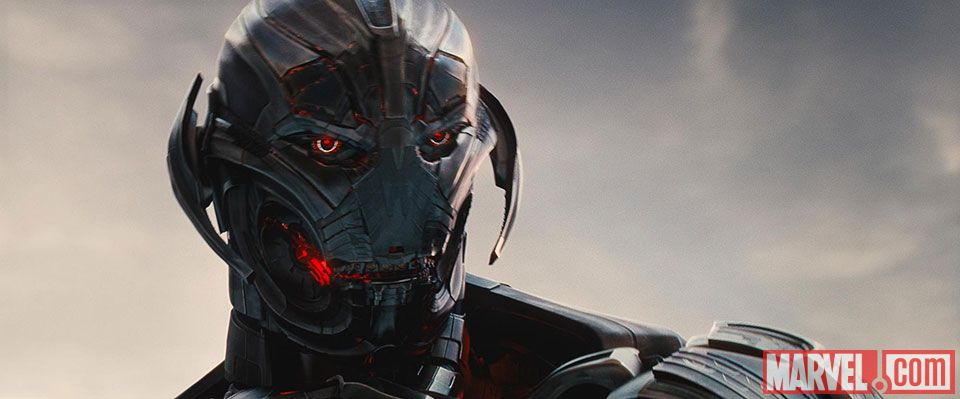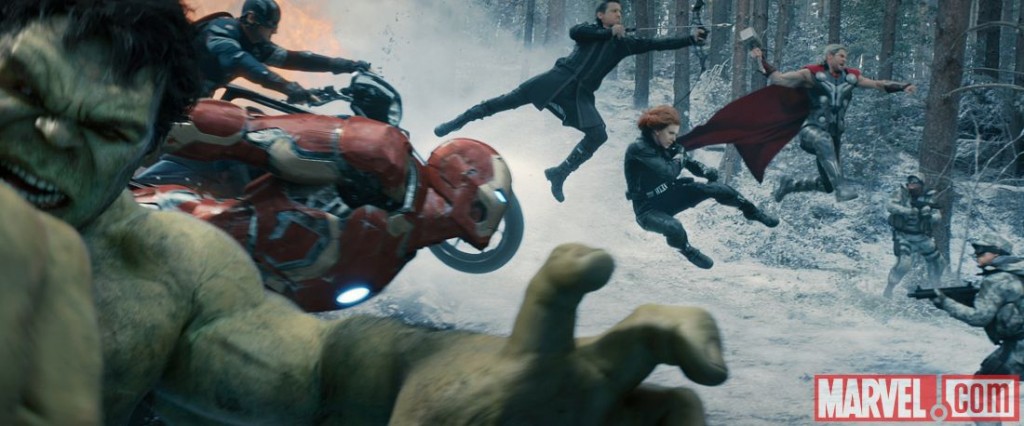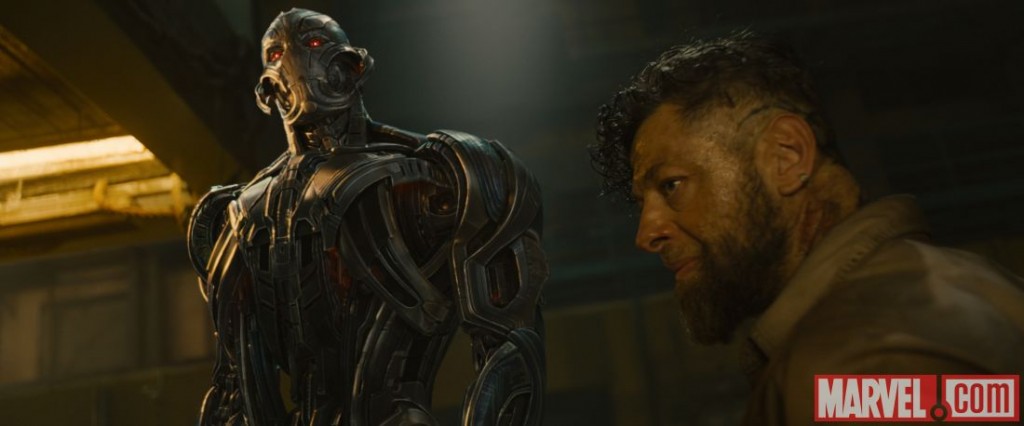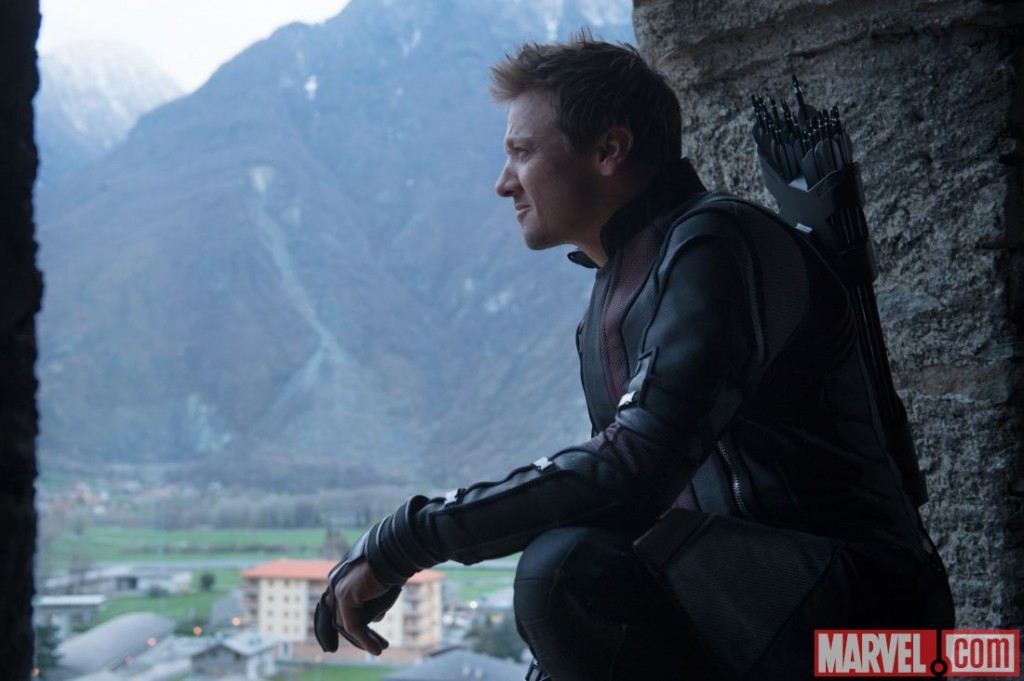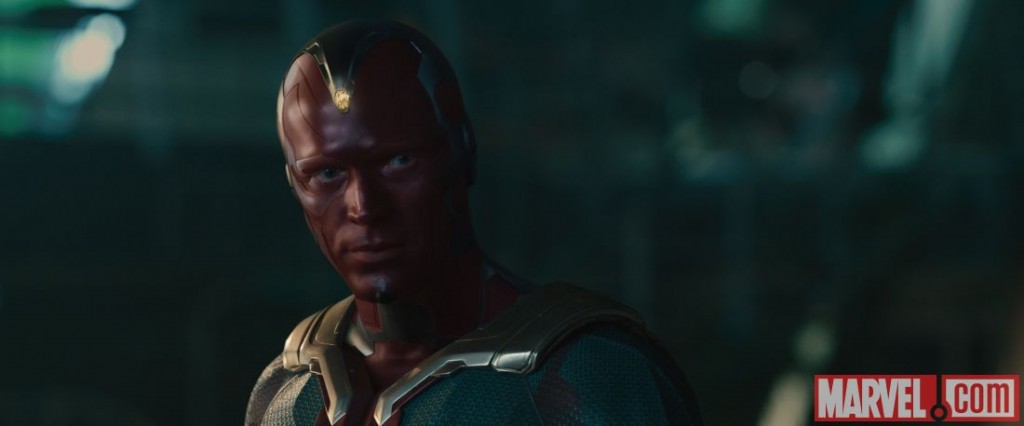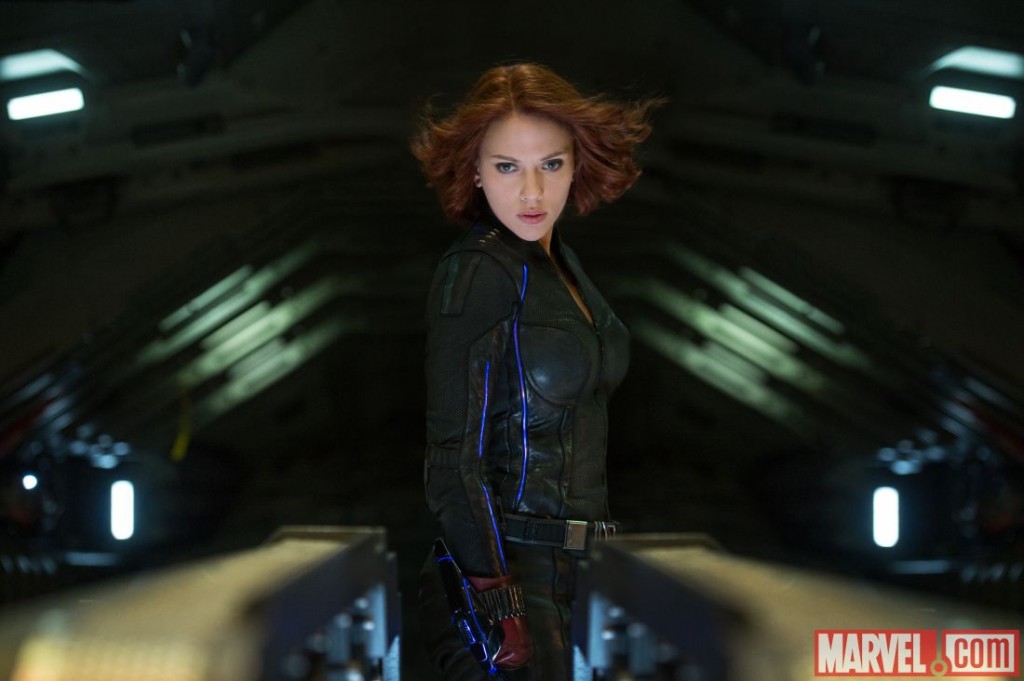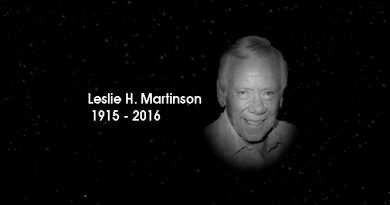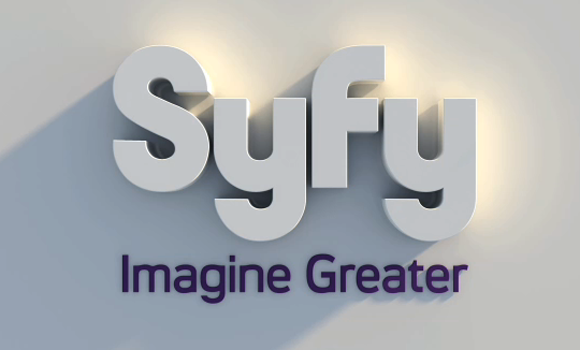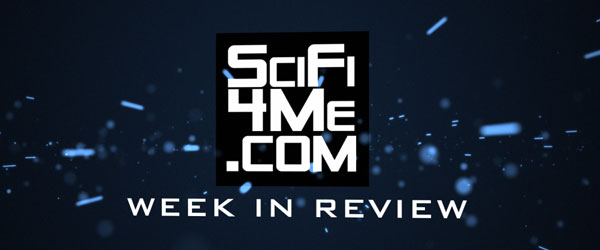AVENGERS Assembles A Solid Hit

Avengers: Age of Ultron is already tracking to make between $210 and $230 million over the opening weekend in the United States. It’s already crossed $250 million overseas.
And it’s probably worth it.
I say “probably” because there are a few moments that threatened to take me out of the movie — the CG on the opening sequence is dodgy, for instance — but those moments are few and they didn’t ruin the experience for me. Age of Ultron is in many ways the end of one act and the beginning of the next. To that end, it serves a useful purpose within the Marvel Cinematic Universe. Because ultimately everything is building to Infinity War.
Overall, though, the movie works in telling the story of Ultron — massively capable artificial intelligence who determines that the only way to save humanity from itself is to eradicate everyone and start over with “evolved” A.I. beings. To that end, he steals vibranium — thus giving us an entry point into Wakanda and the beginning of Black Panther’s entry into the MCU — and starts to carry out a plan that leaves the Avengers knocked back a few steps.
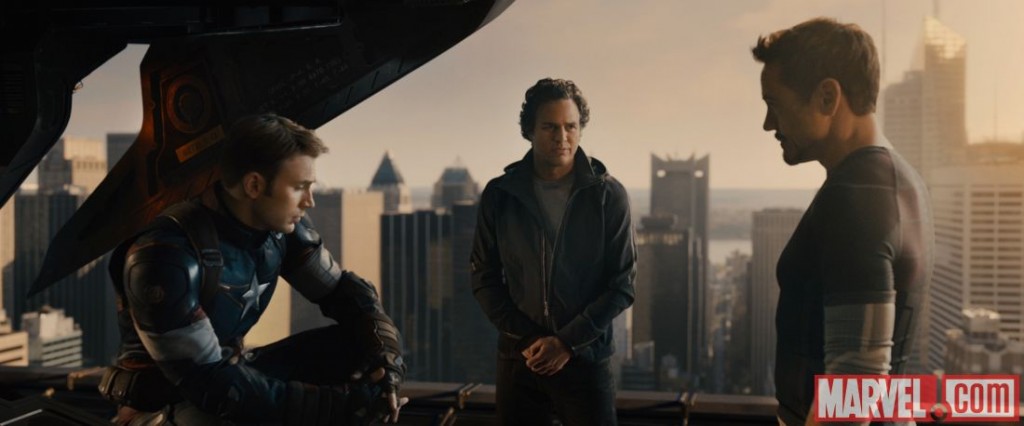
On the flip side, the movie also is setting up what comes next in Captain America: Civil War and Thor: Ragnarok — in addition to telling a romance wrapped in a family movie wrapped in a comedy wrapped in an action flick. There are plenty of story lines swirling around each other, and it’s a credit to Whedon and Company that they can hold it all together. But they only just manage it, and it’s a little thin in some places.
Thor’s Ragnarok setup comes as a result of his Wanda-wavy vision — and I won’t spoil that here — much as the Civil War setup has its beginnings in the scene we’ve seen online: the discussion between Rogers and Stark. It’s a conversation that plants seeds for payoff later, and we get just a hint of that here.
Black Panther even gets the beginnings of a thread woven into the story, as Ultron has to face Ulysses Klaw. And yes, vibranium does have a place in this film.
Clint Barton most definitely gets his moments. He’s got some of the best lines, as well as a significant piece of the film’s emotional core. In fact, it’s both of the non-powered heroes — Clint and Natasha — who have the strongest emotional moments in terms of what’s at stake. For the others, it’s very “big picture”, but Hawkeye and Black Widow have the more personal perspectives.
Also for Hawkeye, it’s a much better set of circumstances that came about in the first Avengers. Of course, it comes with a complete surprise as to his domestic situation, which will irritate anyone thinking there might one day be the comics-faithful Hawkeye-Mockingbird pairing.
Is it better than the first Avengers? No. Is it as good? Yes, but more in terms of the emotional journeys our heroes (and villains) have to take. The rise of Vision is going to have some very interesting long-term consequences, especially since it seems he’s an intriguing fellow to at least one member of the team…
The dynamic between Natasha and Banner has shifted as well. No spoilers here, but they’re hitting it off mainly because they’re both broken, and they see that in each other. Of course, the relationship comes out of the blue, with nothing from previous films to justify it other than the fact that she’s the one that brought him into the team. It’s a little handwavium, and it works for the story, but it seems to be there only for the story.
Natasha, for her part, gets plenty of action sets, but the strongest moments come when her inner core is exposed — whether it’s those times when she opens up emotionally to Banner, or feels the crushing weight of responsibility in saving the people of Sovokia, she’s come a long way since her introduction in Iron Man 2.
Whedon does what he does best with the individual character moments, but ultimately the film stumbles (just a tad) under the weight of having to push the MCU forward in addition to telling a decent stand-alone story. Ultron’s minions are no different from the Chitauri onslaught, and Tony’s leap to develop the technology happens so quickly that it plays like a plot device. Because it is.
As is the moment when the Maximoff twins change sides. It happens so quickly, so superficially, that it feels like something was left on the cutting room floor. We know this is the case because Whedon has said the film could very well have been three hours long. So there’s some forty minutes missing, and in some places it hits the subconscious that something’s just slightly off.
That’s not to say it’s a bad movie. It’s not. It’s tons of fun, with lots of humor and action and everything you’d expect in a big flashy superhero flick. And the sequel actually does more to get into darker territory with the characters than the first Avengers did. Which is what you’d expect from the second act, right? This film gets into the questions about whether the heroes are good for the world or not. Something that’s also going to be explored (we assume) in Batman v. Superman.
Speaking of, it’s been pointed out in other reviews that the Avengers very noticeably make efforts to evacuate the civilians from the area of destruction porn. Make a note, Zach…
The film is packed with cameos, but none from Agents of S.H.I.E.L.D., which teased the film in the most recent episode. The elephant in the room, of course, is still the whole “Coulson is dead in the movies” nonsense. Joss Whedon’s recent statements notwithstanding, it makes little sense that Coulson’s revival would still be a secret from the world’s superheroes after so much time has passed. It also makes no sense that the movies can impact the TV shows, but the shows don’t have any influence over the movies? That’s messed up, and it’s going to come around to bite them if they’re not careful.
![]()

